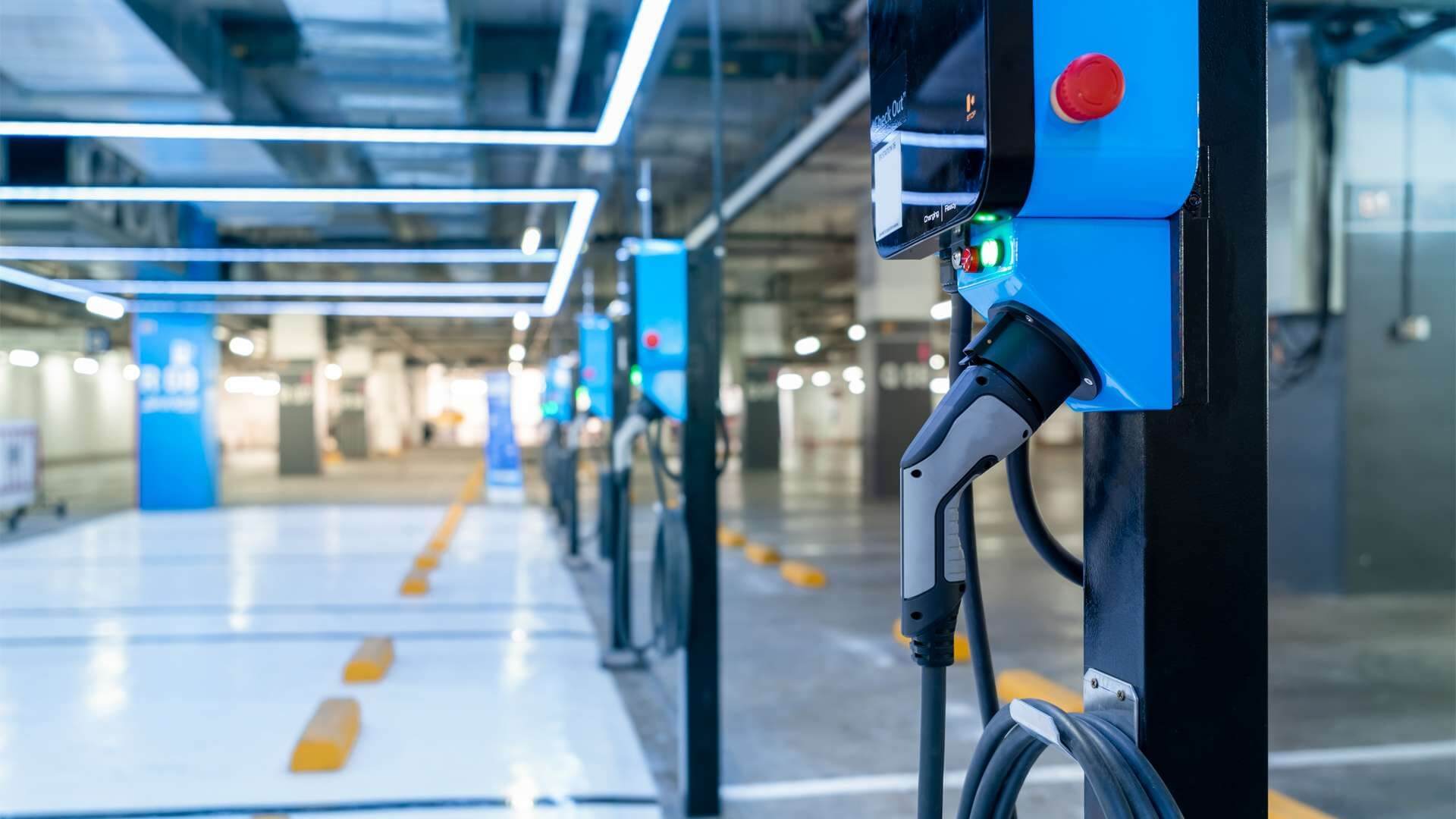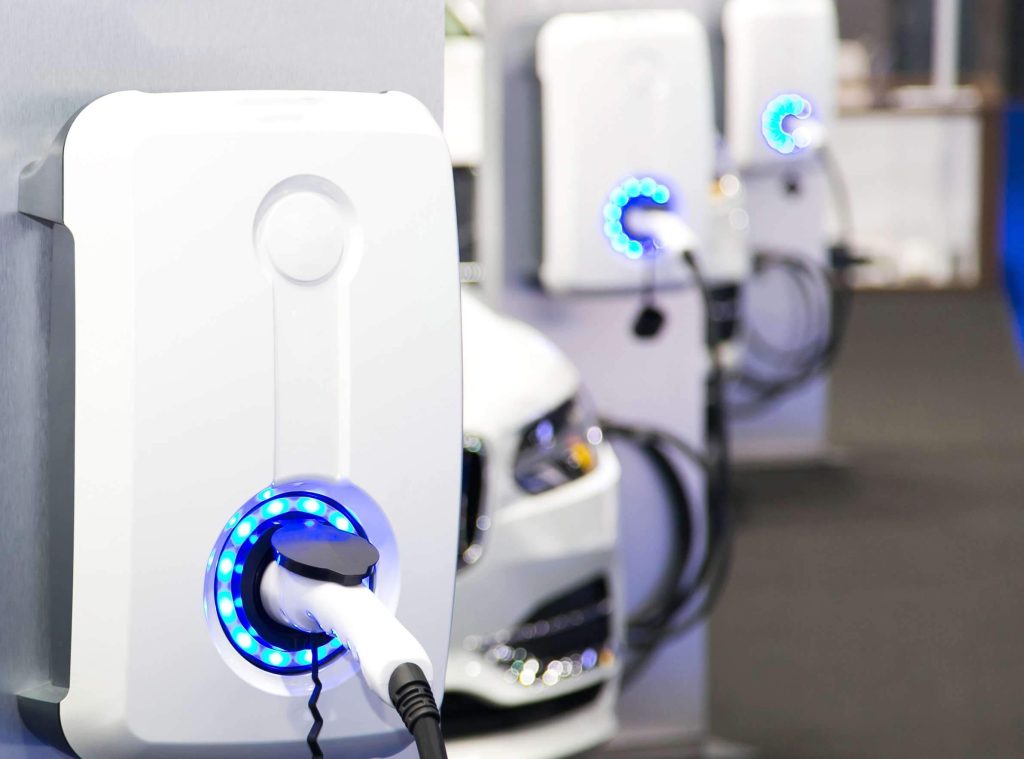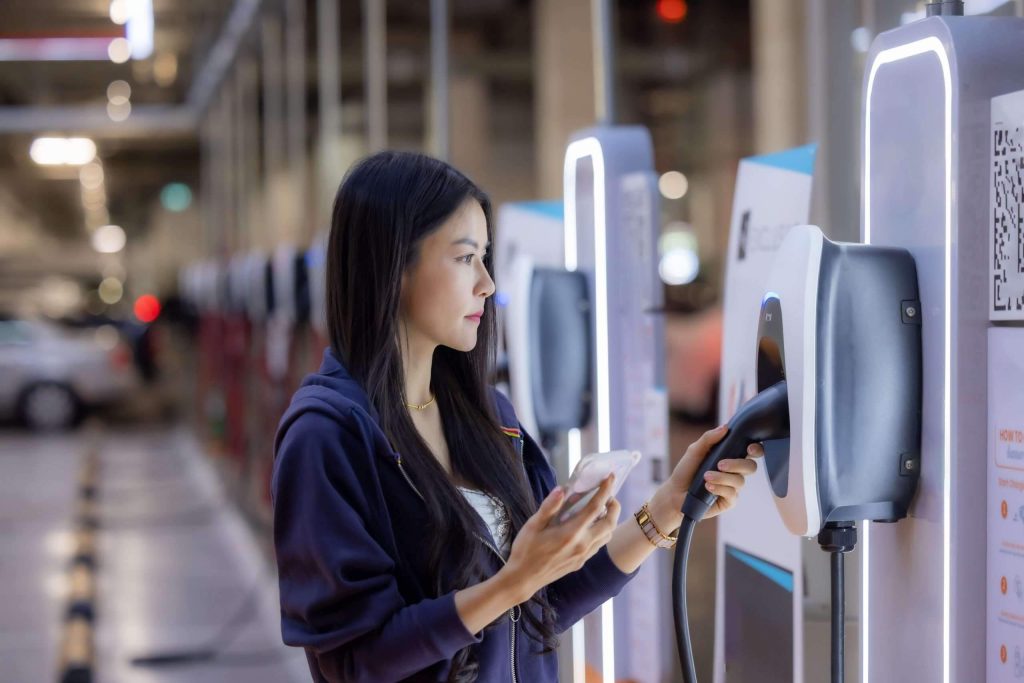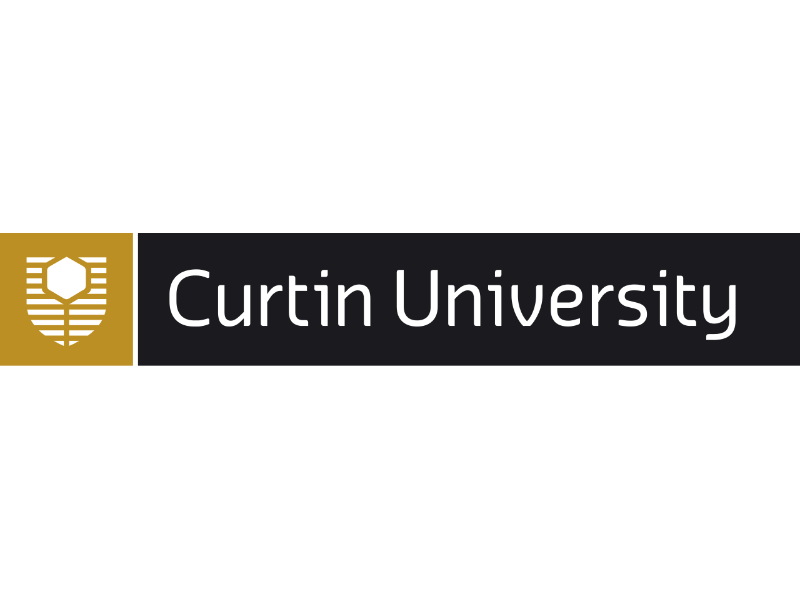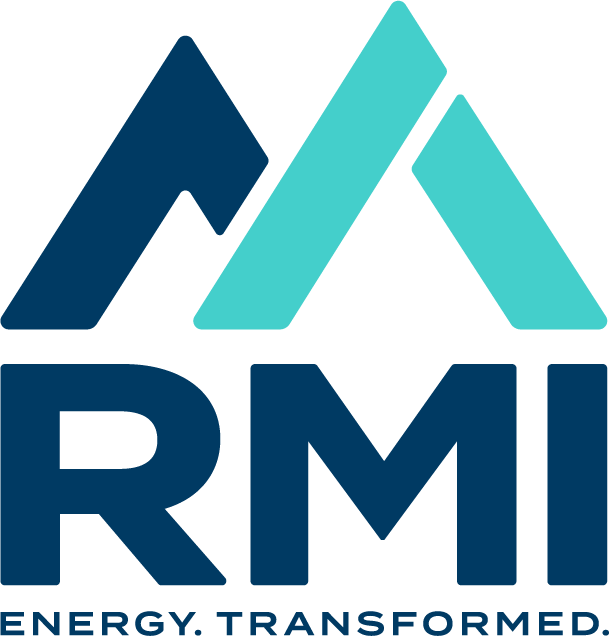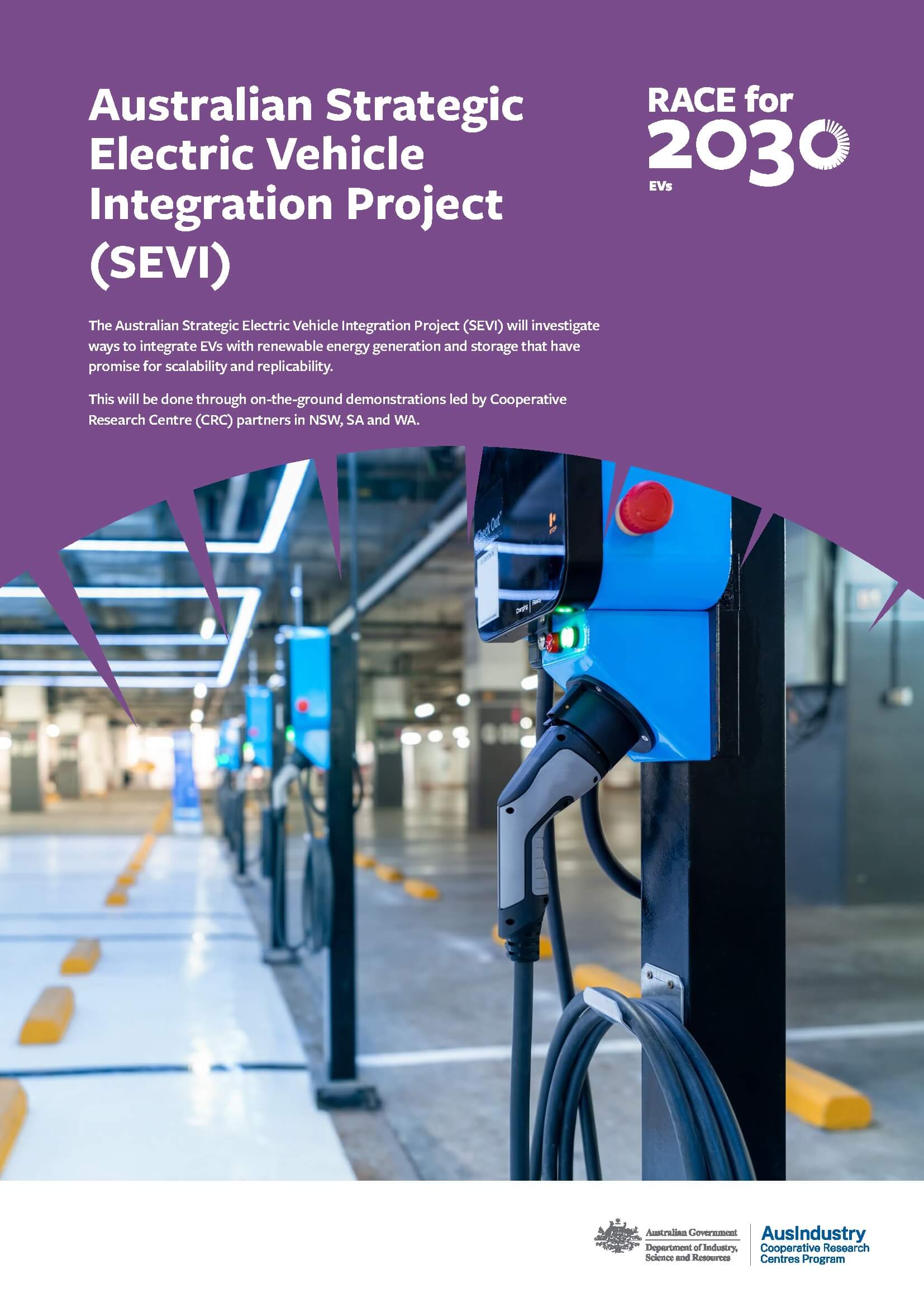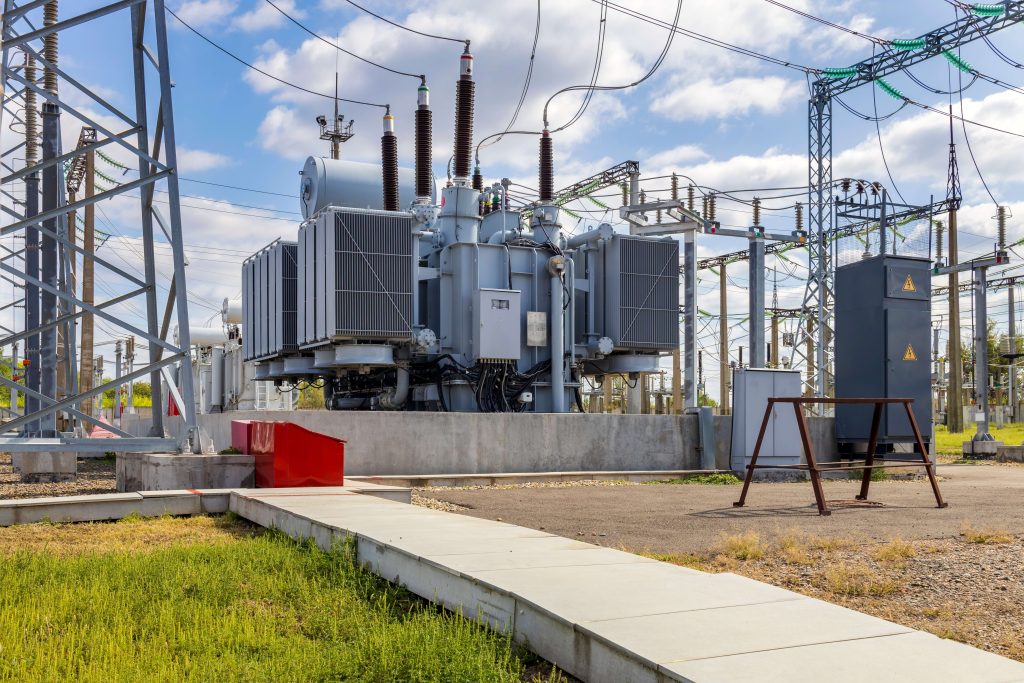Chief Investigators
A/Prof. Charlie Hargroves (Curtin University)
Dr Scott Dwyer (UTS)
Purpose of project
The Strategic EV Integration (SEVI) project is a three-year, industry-led research initiative focused on exploring promising use cases for the integration of electric vehicles (EVs), associated technologies, and business models across Australia. Central to this project is the emphasis on co-design and collaborative implementation with partners and stakeholders, guided by research plans co-designed with industry. These plans lay the groundwork for the implementation and assessment of research within select demonstration projects in New South Wales, Western Australia and South Australia.
The three demonstrations selected for the SEVI project focus on use cases of:
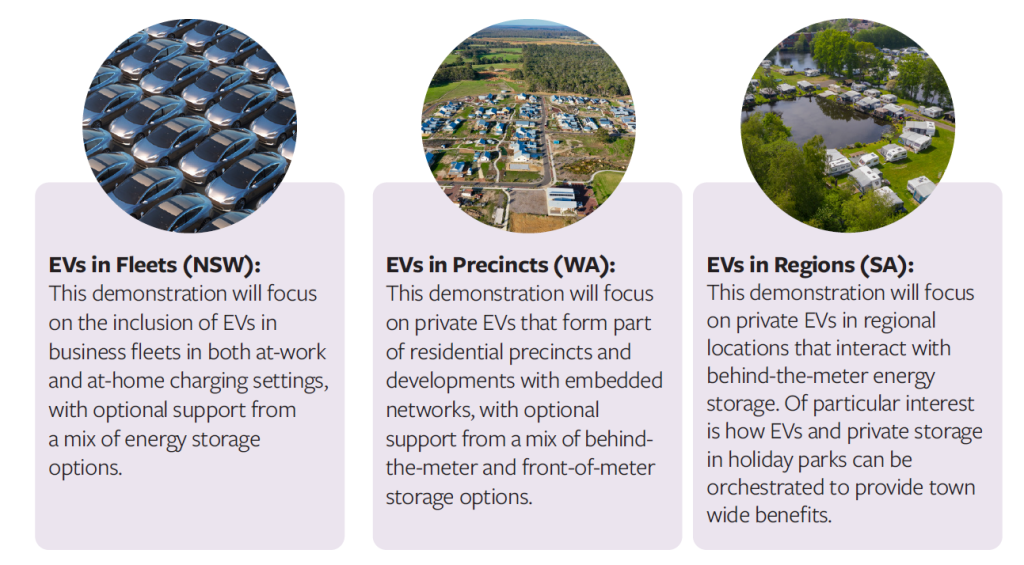
These use cases illustrate the diverse applications of EV integration across different sectors and regions, leveraging collaboration and innovative solutions to enhance the adoption and efficiency of electric mobility. Through these targeted use cases, the SEVI project aims to uncover the practical challenges and opportunities associated with EV integration. By addressing real-world scenarios, the project can generate actionable insights and develop scalable solutions that can be applied nationwide. Moreover, the collaboration with various industry partners ensures that the findings are grounded in practical experience and aligned with current industry needs. This approach not only advances the state of EV technology but also helps to build a sustainable and resilient infrastructure for the future of transportation in Australia.
The projects team comprises nearly 30 demand-driven researchers from six universities, working closely with representatives from 14 funding partners and 13 advising organizations. The project is co-led by two of Australia’s leading demand-driven research institutes, the Curtin University Sustainability Policy Institute (CUSP) at Curtin University and the Institute for Sustainable Futures (ISF) at UTS.
Impact of project
Harnessing the full potential of integrated EVs and energy storage stands to deliver a wide range of benefits:
- The project will seek impact through demonstrating the functionality of EVs and amplifying their impact through three partner-led demonstration projects and subsequent knowledge dissemination.
- Managed charging benefits with the potential for peak load reduction, reduced infrastructure requirements and increased uptake of vehicles will all be possible impacts of this research project.
- Knowledge sharing and communication of key findings will take place via videos and industry-focused reports for each demonstration site. Industry training modules will support the Australian Power Institute to build capacity plans and a final project report will inform wider practice.
Results from this project will build understanding and confidence in the benefits of integrated EVs among consumers, industry, and policymakers.
Project partners – Research
Project partners – Industry
Demonstration partners
Steering partners
International Advisory Panel
Industry Reference Group members
AEMO, ARENA, CSIRO, Energy Consumers Australia (ECA), iMove CRC, National Transport Research Organisation (NTRO), Smart Energy Council and Transport Certification Australia (TCA)


